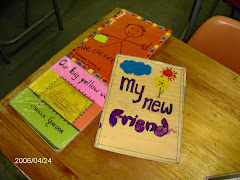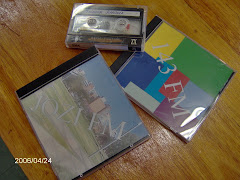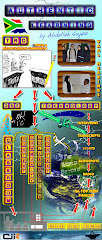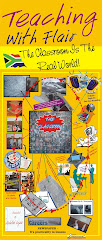July 2006 Issue: Alhuda
Written by Abdullah Sujee
History is the forgotten subject.
You cannot give that which you don’t have and you cannot have if you don’t want!
To startle the mind I have listed some historical accounts in a condensed version from Mahmood Mamdani’s, Good Muslim, Bad Muslim. The impact might provoke two kinds of responses. In fact you would have the knee jerk reaction saying, “I did not know this and these people were really bad characters…” or you would respond saying, “Now what can I learn from this history because I see through current history that violence is a means to an end and it is all that these powers have to give. They really want a piece of Arab land so; if they didn’t want global power they would not behave like this…” Therefore, it is going to be your own moral conscience that is going to drive you to research deeper into the following historical events.
# 1
The year 1492 marks the unification of Spain and it began with the act of ethnic cleansing first of the Jews and then in 1499 through the Edict of Expulsion the Muslims were given the choice to convert or leave.
# 2
The year 1804 in Tasmania, an island the size of Ireland, it people were massacred by the Europeans. The last original native Tasmanian died in 1869!
# 3
The first recorded genocide in modern history is the near annihilation of the Native Americans!
# 4
The first bomb ever dropped from an airplane was Italian in November 1, 1911 outside Tripoli in North Africa.
# 5
The First systemic aerial bombing – by the British on Somalia in 1920!
# 6
***The gassings of Russians by Germans preceded the gassings at Auschwitz – the first mass gassings were of Russian prisoners of war in southern Ukraine.
# 7
The first genocide of the 20th Century was the German annihilation of the Herero people of South West Africa in 1904.
# 8
“Fundamentalism” is, in fact, a term invented in 1920s Protestant circles in the United States…Just like conservatism was a political response to the French Revolution and not a throwback to pre-modern times, fundamentalism, too, was reaction within religion to its changing political circumstances. There is a difference between Christian fundamentalism, which emerged in the 1920s in America, and political Christianity, a phenomenon that arose in America after the Second World War.
#9 My own account – the holocaust of the Jews. The Muslims had nothing to do with it, yet we are called terrorists and Hitler practised the kind of oppression we see in Israel, Iraq, Afghanistan and many other places by people who have close ties with Christianity but, we have not labelled Christians as terrorists and fundamentalists.
These 9 very brief historical accounts serves to show how much or how little we know and how to respond therefore, can you imagine the mind of that child who, at the most crucial age of his life is not taught history? The child is a moron of a present sensate culture geared to make him believe that all that you ever need is a branded item and all that you will give is opportunity to buy and spend more. This hyperbole might even be a shocking fact because in reality many teenagers, young adults and older people don’t have freaking clue of what has happened in South Africa, Palestine, Lebanon, Iraq, Afghanistan and other countries in the last few months. This attitude stems from the fact that history played or plays no significant part in the child’s scholastic history. Therefore, what has the child got to give? He has really a capitalistic mind geared and supply and demand of attaining material goodies and lifestyle luxuries.
Here are two real scenarios:
Scenario 1:
17 July 2006 – schools reopened for the third term. In the assembly in the school the youngsters were questioned of the following: 1) the world cup and the all of them were really head over heels to say something…2) When they were questioned about Lebanon, Palestine, Iraq and Afghanistan, only a handful could answer knowledgeably on the matter…3) When they were questioned about the tsunami in Indonesia there were less than a handful who knew and so it proved with various other contextual issues. This begged the question, “WHY?” The answer that came to mind after much thought was: These pupils have no connection to real events because they don’t see how events occur as a result of people in power doing things that affect us. This reality occurs because pupils in general don’t know history of time and place to want to know how events affect their lives.
Scenario 2:
At a university a while back – the students got into a discussion on the creation of Pakistan. The students of history brought so many issues to the fore that was not known to the audience. Consequently, it led to people talking about the current situation of the ummah in relation to that partition of India and it made general sense that history is important to know your future.
Now let us focus on the historical input # 8. Assuming this lesson on American history was taught to our pupils in Muslim schools as a case in point and in all schools. The word would not have the connotation it has today. In fact pupils would have been able to make that connection and people in general would have different view on what ‘fundamentalism’ is. The point made here is that history as a subject if taught without propaganda would make people more aware of the world they live in. However, the danger of distorted history needs to be put into perspective as well.
For a moment ponder on current history textbooks in the United States and elsewhere in the G8 nation states. How do you think their history books reflect 9/11 and the July 7 bombings, the Iraq invasions etc? The textbooks would in many ways show Muslims as the terrorists, and radical Islam been a religion that advocates violence and ‘moderate Islam’ as the only option for peace. This shows how history is distorted but used to promote a particular mindset to maintain the status quo. Therefore, history cannot be seen through the eyes of school textbooks only but, through the archives of the big past history that governs how the present history unfolds.
Al-Imam al-Waqidi in his momentous book, ‘The Islamic Conquest of Syria’ mentions that: “Muslims are generally ignorant of their history, thus developing an inferiority complex towards the West.” From this we see that Muslims have not taken the study of History seriously and therefore, our schools have come to celebrate the other subjects overbearingly thus, making a subject like history a non-entity. The consequences are for all to see. Generally, Muslim students are caught up in a wave of a greater fictitious world which they have made their reality. I have seen schools where history was made an important subject and taught with vigour, the students made an impact on the social-political ethos of the school and were prepared to do something for the school when they left it. You will find in schools where history is not taught at all, the students have no real link to the history of their school, they have no real tradition in their schools, they have no desire to promote their school as an institution of greatness nor, will they take an initiative to commemorate their school’s 10 year existence so on an so forth. Furthermore, it is a tremendous task to motivate the teachers, the pupils, the SGB, BOG to commemorate the country’s important days as well as the school’s important dates. This eventually leads to an indifferent attitude to issues locally and globally. Work locally, think globally – ever thought how it came into being?
You might look at the above as a simplistic argument to promote the teaching of history but, think about it. We have maintained the five pillars of Islam because we made the history behind it real and every Muslim can talk about it with confidence and vigour. Is it not possible then to talk of other events in history that will lend significance to our lives so that we do not become overdosed with an inferiority complex? The answer is YES. Yes, we can if we begin to make the teaching of history important and paramount in schools and become selective with who teaches History as how we are about whom teaches Math and Science. This selective importance we give to History will save the generations to come from being colonised again. The teaching of History is the one of the most important weapon we have to ‘DECOLONISE’ the mind and to realise that there is an explanation to events from an angle of facts and drawing lessons from those events. Therefore, the approach of teaching history should be more on the lessons rather than regurgitating facts upon facts.
It is clear now that you can only give that which you have especially when you are dealing with people. History gives a perspective of uniqueness and grandeur and if you don’t have that in your past you will not be able to give off that uniqueness and grandeur. If you don’t know your past then the danger is, you will be caught in the web of taking what others give you of your own supposed uniqueness and grandeur and how they will tell you it was borrowed or learnt from others. Do you get the picture? The less you know of your own history, the more you will believe what others tell you about yourself! This is where we are today. We are caught in the glorious past of selective understanding of Islamic history and we have become story tellers.
Story tellers have a very, very limited view but, the researcher is the person who does not tell you the depth of the ocean by judging the depth from the beachfront where his toes are dipped into the water. He will make you swim in the torrents of the tide and bring you to your wits end because he wants you to face reality and know that you have a chance to rewrite history. This is what we are afraid of. We are afraid to face the lessons of our history because it will bring us to our wits end to know that we have so much to give. Muslims have come to give and not to take! If we take our history seriously then, we will take the bull by the horns and begin to redefine the ‘Bull run’. This can happen when we begin to make history a dominant part of our studies.
Muslim students today are not keen to study History, languages, the Arts and other such careers because we have not seen the history it will reap for the generations to come. Therefore, we can at this point give our children the only dream of material attainment because it’s all that we have to give. Look into the holy Quran and identify the many historical anecdotes Allah uses to make us aware of what has happened and what will happen based on the past. How much of this history has come to us from the ulema when they address us and how much have we studied this at tertiary level to make an impact on the minds of people?
History is the forgotten subject. You cannot give that which you don’t have and you cannot have if you don’t want! In conclusion you need to begin reading history and establish a library in your home as how you established the television room. You will see the difference when you pick up a book to read and when you child asks you about it, you can reply: “I am reading a book about The Islamic Conquest of Syria and it says here that the Muslims…” Can you imagine what will happen to that child’s mind that just leapt off the coach in front of the plasma that showed Muslims to be defeated and downtrodden? Make history today and start that library at home but, read as well.
Thursday, June 5, 2008
Subscribe to:
Post Comments (Atom)







No comments:
Post a Comment